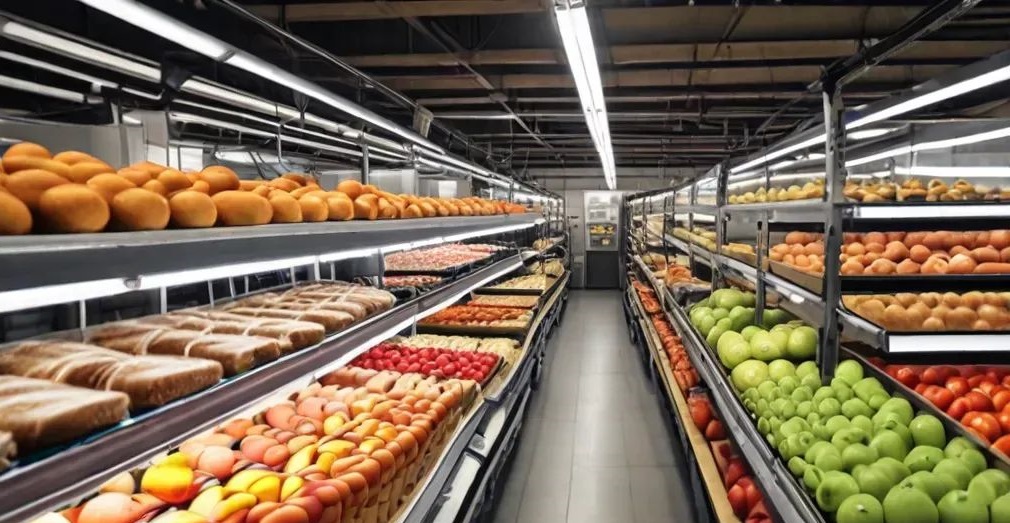Blog on RFID Technology and IoT Solutions
Blog Home

How RFID Technology is Transforming the Food Industry
11 June 2024Radio Frequency Identification (RFID) technology has been steadily revolutionizing various sectors, and the food industry is no exception. By enabling real-time tracking and data collection, RFID offers unparalleled advantages in managing supply chains, ensuring food safety, reducing waste, and enhancing inventory management. This blog delves into the various ways RFID technology is transforming the food industry.
1. Enhanced Supply Chain Management
Real-Time Tracking
RFID technology allows for the real-time tracking of food products from farm to table. Each item tagged with an RFID chip can be monitored throughout its journey, providing detailed information about its location, condition, and handling.
Improved Traceability
In the event of a foodborne illness outbreak or contamination, RFID systems can quickly trace the affected products back to their source. This capability significantly reduces the time needed for recalls and helps prevent further distribution of contaminated items.
2. Food Safety and Quality Control
Temperature Monitoring
Many RFID tags are equipped with sensors that monitor the temperature of food items. This feature is crucial for perishable goods, ensuring they remain within safe temperature ranges during transportation and storage. Real-time alerts can be generated if temperatures deviate from the set parameters, allowing for immediate corrective actions.
Expiry Date Management
RFID technology helps manage the shelf life of products more effectively. Automated systems can track expiry dates and prioritize the dispatch of older stock, reducing the risk of selling expired products and minimizing waste.
3. Inventory Management
Automated Stock Taking
RFID systems streamline inventory management by automating stock-taking processes. Unlike traditional barcode systems, RFID readers can scan multiple tags simultaneously, reducing the time and labour required for inventory checks. This automation leads to more accurate and efficient inventory management.
Improved Stock Accuracy
With RFID, businesses can maintain precise inventory levels. This accuracy helps in reducing instances of overstocking or understocking, optimizing storage space, and ensuring that products are available when needed.
4. Waste Reduction and Sustainability
Minimizing Food Waste
By providing better control over inventory and expiry dates, RFID technology helps reduce food waste. Businesses can ensure that products are sold or used before they expire, leading to more efficient use of resources and a reduction in waste.
Enhancing Sustainability
RFID technology supports sustainable practices by improving supply chain efficiency. Accurate tracking and inventory management reduce the need for excess production and storage, leading to lower energy consumption and a smaller carbon footprint.
5. Consumer Trust and Transparency
Building Consumer Confidence
RFID technology enhances transparency in the food supply chain, allowing consumers to access detailed information about the origin and journey of their food. This transparency builds trust and confidence in the quality and safety of the products they purchase.
Authenticity Verification
RFID tags can also be used to verify the authenticity of premium or organic products. By ensuring that items are genuine and have not been tampered with, businesses can protect their brand reputation and meet consumer expectations for quality.
6. Streamlining Operations
Efficiency in Logistics
RFID technology improves logistics efficiency by providing real-time data on the location and status of shipments. This visibility helps in optimizing routes, reducing transportation costs, and ensuring timely deliveries.
Enhancing Warehouse Operations
In warehouses, RFID systems facilitate quicker and more accurate picking, packing, and shipping processes. This efficiency reduces operational costs and enhances overall productivity.
7. Cost Considerations and ROI
Initial Investment
While the initial investment in RFID technology can be significant, the long-term benefits often outweigh the costs. Businesses can expect a return on investment through improved efficiency, reduced waste, and enhanced inventory management.
Scalability
RFID systems are scalable, making them suitable for businesses of all sizes. As a company grows, the RFID infrastructure can be expanded to meet increasing demands without significant disruptions.
Conclusion
RFID technology is transforming the food industry by enhancing supply chain management, ensuring food safety, reducing waste, and improving inventory accuracy. Its ability to provide real-time data and traceability offers significant advantages over traditional tracking methods. As more businesses adopt RFID technology, the industry will continue to see improvements in efficiency, sustainability, and consumer trust.
The integration of RFID into the food industry is not just a technological upgrade but a step towards a more transparent, efficient, and sustainable future. For companies looking to stay competitive and meet the evolving demands of consumers, investing in RFID technology is a forward-thinking decision that promises substantial long-term benefits.
search
sort by
category
- All
- Cold chain monitoring
- Intelligent Transportation Systems
- IoT
- IoT in agriculture
- IoT solutions
- RFID
- RFID for 3PL Providers
- RFID for Inventory Tracking
- RFID for Personal Tracking
- RFID For Vehicle Tracking
- RFID in Laboratory Inventory Management
- RFID label tag
- RFID solutions
- RFID Solutions in Construction
- RFID System
- RFID Tags for Asset Tracking
- RFID Technology
- RFID Technology in Food Industry
- RTLS Technology
- Track&Trace solutions
- Uncategorized
- Intellistride.com
- Blog
- How RFID Technology is Transforming the Food Industry